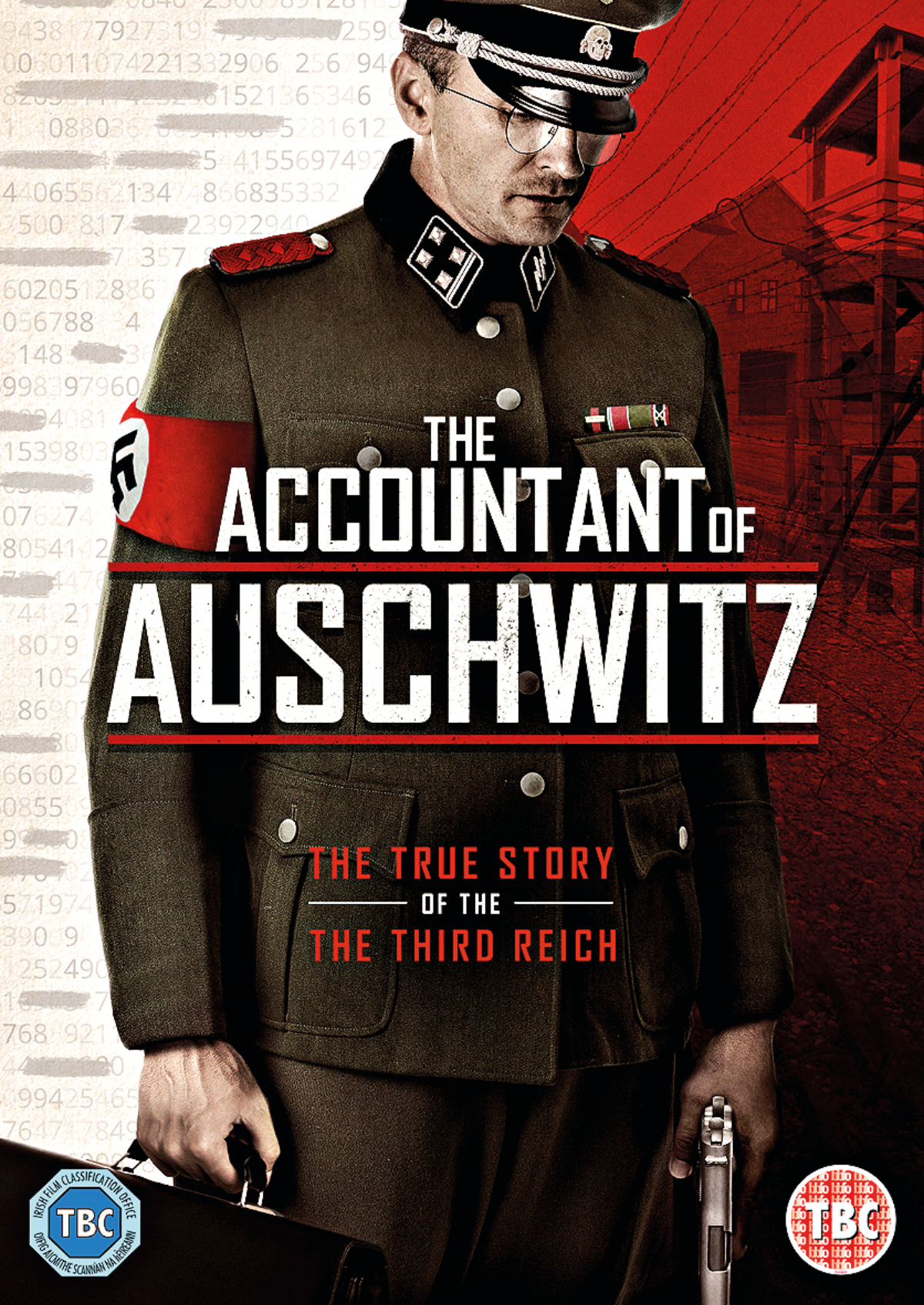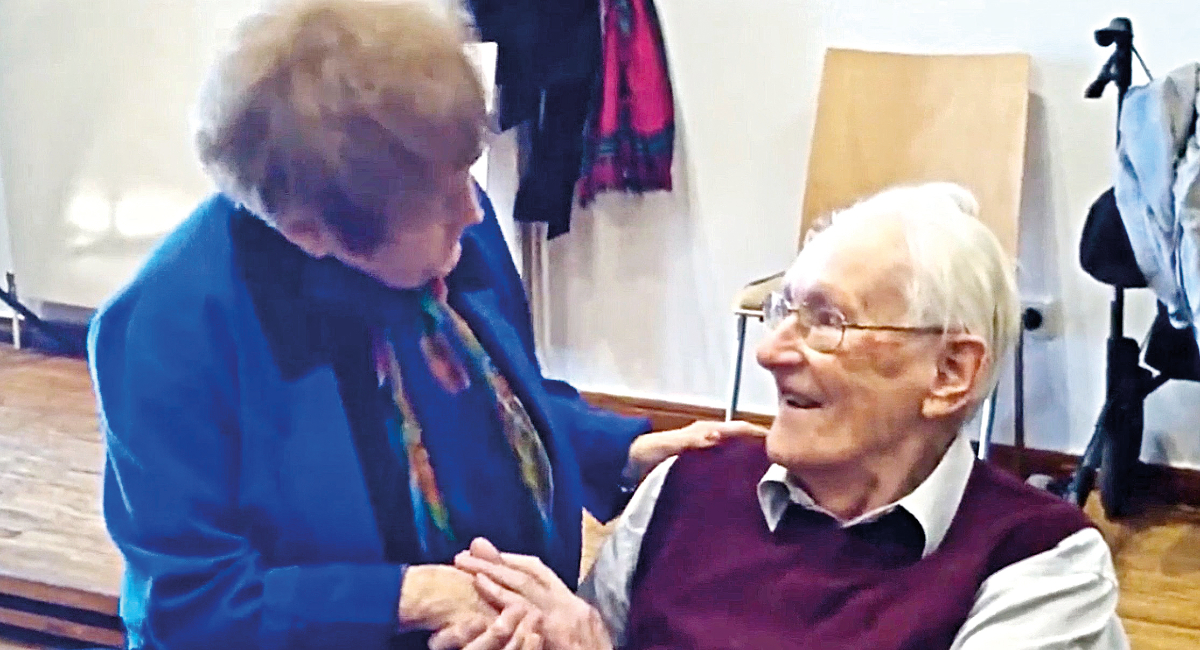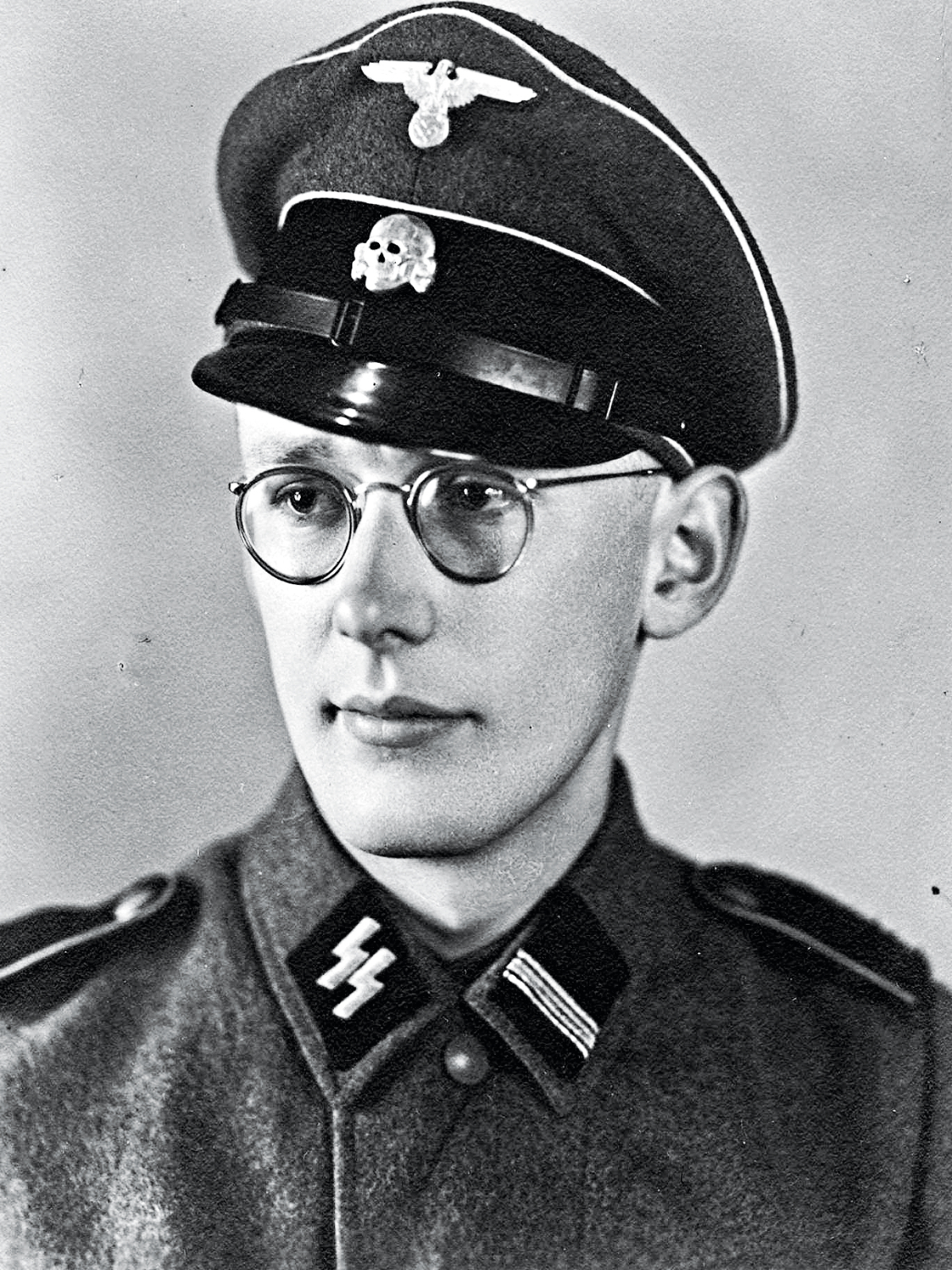Exploring the trial of Oskar Gröning 70 years after his crimes
Stephen Applebaum speaks to the director of a new film that explores the controversial trial of former SS guard Oskar Gröning
The subject of the Shoah was important to director Matthew Shoychet “as a Jew” – but he didn’t want to make a film just for Jews. Neither did he want to risk people saying they’d seen it all before. He asked himself: “How do we make it unique and a modern story?”
The answer was Oskar Gröning who, in 2015, was put on trial in Luneburg, Germany, at the age of 93, as an accessory to the murder of 300,000 Hungarian Jews.
Shoychet’s resulting documentary, The Accountant of Auschwitz, now available on DVD and digital platforms, is a fascinating insight into the controversial trial of the former Nazi.
Get The Jewish News Daily Edition by email and never miss our top stories Free Sign Up
As the film notes, this was only possible because a decision made in the earlier case of John Demjanjuk, a former SS guard at Sobibor, which introduced the idea that someone who worked in a death camp could be tried for mass murder without personally having killed anyone.
Although a technicality stopped the idea becoming legal precedent, there began a race against time to find former Nazis fit enough to stand trial. Ironically, Gröning stood out because of a chilling interview he had given to the BBC in 2005, to refute Holocaust deniers.
“He kind of exposed himself,” says the Canadian-born director. “I don’t know if he still would have done the interview if he knew a few years down the road that would become one of the main reasons why investigators would track him down.”
The charges against Gröning focused on a three-month period of high activity at Auschwitz, during which he occasionally worked as a guard on the ramp, as new arrivals were selected for the gas chamber. “So he wasn’t on trial because he counted the money, or the jewellery, or the gold teeth. He was a part of that conveyor belt of death.”
The film includes moving interviews with survivor trial witnesses Bill Glied (who died soon after filming), Max Eisen, Eva Kor, and Hedy Bohm. The latter had sympathy for the frail old man, who shuffled into court using a walker, but lost it when he sat down, crossed his arms, and looked imperiously around the room. To her, he was still the same Nazi.

Shoychet uses the trial as a hook on which to hang thought-provoking questions about complicity, guilt, responsibility, and the rights and wrongs of putting in the dock nonagenarian former Nazis. We also learn staggering facts, such as the distressing reality that only 124 out of 800,000 SS officers left alive at the end of the war received sentences.
Former Nazis filled the judiciary, particularly in West Germany, between 1945 and 1967, so there was little will to pursue other war criminals.
“One of the benefits of the [Gröning] trial is that he spoke for the history books,” says Shoychet. “The fact it’s happening in Germany is very important, because there really was no justice in the 1950s and 60s. So they’re [the Germans] kind of setting it straight.”
But the moral philosopher Peter Singer asks: “If you punish a man of 93, for something he did when he was 23, are you still punishing the person who did the crime?”
Bohm thought so. Does S-hoychet? “I don’t know if he was the same person. That’s her opinion. He asked God for forgiveness. He never said, ‘I’m sorry.’ And when he talked, he would use the language of the SS.

“You’re thinking, ‘If I pulled out my star of David and my chai that I have on my necklace, does that man hate me?’ Was he washed up in the whole ideology at the time, but now it’s faded away because he’s lived a life, had children? It’s very mixed emotions.”
Gröning was found guilty, and the precedent narrowly missed in the Demjanjuk trial written into law. A majority of the survivors did not want Gröning (who died while appealing the verdict) to be imprisoned. For them it was enough he’d testified.
In the film, American academic and lawyer Alan Dershowitz says he hopes sending a powerful message that there’s no statute of limitations on genocide could have an impact on people participating in it. “Do I think a 20-year-old ISIS fighter is going to see this trial and say, ‘Oh no, I’m going to stop, because when I’m 95 I might get caught’? I think that’s very optimistic,” says Shoychet.
But “never again” should mean more than the hollow slogan another contributor claims it has become in the post-Holocaust world. Indeed, Gröning – raised in a nationalistic family and a member of the Hitler Youth – is a warning of where the Far Right rallies shown towards the end of the documentary can lead.

“It’s a short section,” says Shoychet, “but it adds a twist to bring it to the modern context. We coined the phrase ‘never again’, but it means nothing. We show Rwanda, Darfur, Cambodia, Biafra, and then I show [people chanting] the ‘Jews will not replace us’ in Charlottesville.
“In Newcastle, they’re saying ‘Heil Hitler’, and in Athens they’re saying, ‘Stop Islam’. So, is history really repeating itself?”
υ Signature Entertainment’s The Accountant of Auschwitz is available on DVD and Digital now

Thank you for helping to make Jewish News the leading source of news and opinion for the UK Jewish community. Today we're asking for your invaluable help to continue putting our community first in everything we do.
For as little as £5 a month you can help sustain the vital work we do in celebrating and standing up for Jewish life in Britain.
Jewish News holds our community together and keeps us connected. Like a synagogue, it’s where people turn to feel part of something bigger. It also proudly shows the rest of Britain the vibrancy and rich culture of modern Jewish life.
You can make a quick and easy one-off or monthly contribution of £5, £10, £20 or any other sum you’re comfortable with.
100% of your donation will help us continue celebrating our community, in all its dynamic diversity...
Engaging
Being a community platform means so much more than producing a newspaper and website. One of our proudest roles is media partnering with our invaluable charities to amplify the outstanding work they do to help us all.
Celebrating
There’s no shortage of oys in the world but Jewish News takes every opportunity to celebrate the joys too, through projects like Night of Heroes, 40 Under 40 and other compelling countdowns that make the community kvell with pride.
Pioneering
In the first collaboration between media outlets from different faiths, Jewish News worked with British Muslim TV and Church Times to produce a list of young activists leading the way on interfaith understanding.
Campaigning
Royal Mail issued a stamp honouring Holocaust hero Sir Nicholas Winton after a Jewish News campaign attracted more than 100,000 backers. Jewish Newsalso produces special editions of the paper highlighting pressing issues including mental health and Holocaust remembrance.
Easy access
In an age when news is readily accessible, Jewish News provides high-quality content free online and offline, removing any financial barriers to connecting people.
Voice of our community to wider society
The Jewish News team regularly appears on TV, radio and on the pages of the national press to comment on stories about the Jewish community. Easy access to the paper on the streets of London also means Jewish News provides an invaluable window into the community for the country at large.
We hope you agree all this is worth preserving.
-
By Brigit Grant
-
By Laurent Vaughan - Senior Associate (Bishop & Sewell Solicitors)
-
By Laurent Vaughan - Senior Associate (Bishop & Sewell Solicitors)
-
By Laurent Vaughan - Senior Associate (Bishop & Sewell Solicitors)
-
By Laurent Vaughan - Senior Associate (Bishop & Sewell Solicitors)






















